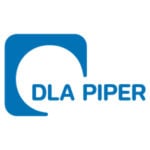As a preliminary matter, French insolvency law has recently been reformed by Ordinance No. 2021-1193 of 15 September 2021 (the “Ordinance“) enacted to transpose Directive (EU) No. 2019-1023 of 20 June 2019 “on preventive restructuring frameworks, on discharge of debt and disqualifications, and on measures to increase the efficiency of procedures concerning restructuring, insolvency and discharge of debt”. Most provisions of the Ordinance are only applicable to insolvency proceedings opened as from 1 October 2021.
Concurrently, French security law has also been reformed by Ordinance 2021-1192 of 15 September 2021, which entered into force on 1 January 2022 except for certain specific provisions, which entered into force on 1 January 2023. The main purpose of this reform is to strengthen the effectiveness of security interests whilst ensuring legal consistency to enhance the attractiveness of French law.
On 7 December 2022, the European Commission published its proposal for a directive of the European Parliament and of the Council harmonising certain aspects of insolvency law. Its main objectives are the following: eliminate forum shopping practices and enhance integration of the internal market in the area of insolvency laws for a more efficient functioning of the capital markets in the European Union, including greater access to corporate financing (especially cross-border investments in the internal market). Its adoption is currently underway and following the ordinary legislative procedure – as of May 2024 it is the subject of discussions within the Council of the European Council.
-
What forms of security can be granted over immovable and movable property? What formalities are required and what is the impact if such formalities are not complied with?
- Security over real estate property
The two most common types of security over real estate property are the mortgage (hypothèque) and the lender’s lien (privilège du prêteur de deniers).
Both require a notarial deed and must be registered in order to take priority. Before the Ordinance came into force, a mortgage only acquired priority from the date of its registration, while a lender’s lien was registered from the date of acquisition, provided it was registered within two months. This distinction, however, no longer exists for liens granted after 1 January 2022, as such liens are now considered statutory mortgages (hypothèque légale).
In either case, enforcement may be effected by means of a court-supervised public auction or by court-ordered attribution of the property to the secured creditor (subject to the creditor paying the amount, if any, by which the value of the property as appraised independently, exceeds the secured amount). In the case of a mortgage only, enforcement may also result from the direct appropriation of the secured property by the secured creditor pursuant to the mortgage deed (or at the time of enforcement) (subject to payment of any excess as in the case of court-ordered attribution). Direct appropriation is seldom agreed to by borrowers in normal financing circumstances but may more likely be imposed in a restructuring context.
A French trust arrangement (fiducie) may also be used for security purposes in relation to real estate. In a fiducie, one or several transferors transfer assets, rights or security interests to a trustee (fiduciaire) that manages those assets, according to the terms of the fiducie agreement, for the benefit of designated beneficiaries. The fiducie must be registered with the French tax authorities within one month of signing and, if granted over real estate, is subject to further publicity requirements. Compliance with these filing obligations is necessary to ensure validity and enforceability of the security.
- Security over movable property
One of the main types of security over movable property is the pledge (known as gage in respect of tangible assets and nantissement in respect of intangible assets). Failing performance of the secured obligation, the pledged assets may be sold – subject to the stay of enforcement actions triggered by the opening of any insolvency proceedings. A written instrument is usually required to determine the terms and conditions of the enforcement of the pledge against third parties. A Dailly assignment of professional receivables, a retention of title clauses or a fiducie arrangement may also be used to secure payments. Since 1st January 2022, the general assignment of receivables regime as provided for in the Civil Code can also be used, which enables all types of receivables to be transferred between parties as collateral.
- Security over shares
The most usual types of security are the pledge over shares (nantissement de parts) or over company’s securities accounts (nantissement de comptes-titres) depending on the corporate form of the company. In the latter case, pledgors will fictitiously retain the financial securities until they are fully paid up by the debtor, i.e. such securities cannot be sold without their claim being paid in full (Article L. 211-20 of the French Code monétaire et financier).
-
What practical issues do secured creditors face in enforcing their security package (e.g. timing issues, requirement for court involvement) in out-of-court and/or insolvency proceedings?
The practical issues raised by the enforcement of security interests by secured creditors depends commonly on the type of security right, the nature of the secured asset and also the factual context in which enforcement is requested.
Whilst secured creditors may enforce their security interests in the context of out-of-court proceedings, in the case of insolvency proceedings, the rights of secured creditors are generally paralysed by the stay of payments and enforcement actions.
However, some security interests remain effective, such as:
- security interests providing exclusivity rights over the assets. Most efficient are the property based security interests (e.g., fiducie arrangement without an agreement allowing the settlor to use the assets (contrat de mise à disposition), Dailly assignments and retention of title clauses);
- retention rights which usually ensure that creditors have an exclusive right over the value of the assets, e.g., pledges over tangible property (with or without dispossession), pledges over securities accounts and pledges over receivables. In the latter case, the enforcement of such retention rights in the frame of insolvency proceedings is still debated.
That being said, it is noteworthy that from 1st October 2021, any increase in the scope of a consensual security interest or a consensual retention right, irrespective of the mechanism used (i.e. by way of supplementation, top-up or transfer of assets or rights – e.g. dividends under the pledged securities), will be prohibited as from the opening of insolvency proceedings. The scope of this rule remains unclear and uncertain, and notably whether this prohibition covers only the observation period of insolvency proceedings. However, some exceptions are provided for, in particular with regard to Dailly security assignments.
-
What restructuring and rescue procedures are available in the jurisdiction, what are the entry requirements and how is a restructuring plan approved and implemented? Does management continue to operate the business and / or is the debtor subject to supervision? What roles do the court and other stakeholders play?
- Mandat ad hoc proceedings
Mandat ad hoc proceedings are preventive and confidential proceedings which are not limited in time and available to debtors which are solvent (i.e. able to pay debt as they fall due with available cash).
In such a context, the management remains in place and continues to run the business as usual, but with the support of a mandataire ad hoc appointed by the President of the commercial court. The main role of the mandataire ad hoc is usually to assist the debtor in negotiating with its main creditors on a confidential basis and reaching the most suitable and consensual solution.
Approval by creditors is on a voluntary basis and is based on an unanimous vote. If an agreement is reached between the company and its creditors, the mandataire ad hoc’s duties end.
The opening of such proceedings do not trigger an automatic stay of payments and enforcement actions, but the debtor may still request a rescheduling of debt in accordance with general law. Any contractual provisions lessening debtor’s rights or increasing its obligations as a result of the commencement of a mandat ad hoc is deemed null and void (i.e. events of default based on such commencements are unenforceable).
Mandat ad hoc is not listed in Schedule A of the EU Regulation on Insolvency Proceedings, i.e. may be commenced with regard to a debtor even if its center of main interest is not (or not yet) in France, or even if main proceedings are opened with regard to such debtor in another EU Member State. As a result, there is no automatic recognition or enforceability across borders of the effects of such mandat ad hoc proceedings.
- Conciliation proceedings
By contrast with the mandat ad hoc, which has not been affected by the Ordinance, conciliation proceedings have slightly been reformed with the aim of strengthening their effectiveness.
Conciliation proceedings are available to debtors (upon their request only) that face legal, financial or economic difficulties that are actual or foreseeable, provided that they are solvent or have not been insolvent for more than 45 days. Conciliation proceedings are confidential and may last up to five (5) months maximum.
Management remains in place and continues to operate the business, but negotiations are facilitated through the involvement of a conciliator.
The agreement reached between the debtor and its creditors is negotiated on a purely consensual and voluntary basis and can be either acknowledged by the judge (accord constaté) or formally sanctioned by the court (accord homologué) in which case, the cash flow insolvency date cannot be backdated to a date falling before the court order approving the conciliation agreement. The following should also be noted:
- any contractual provisions lessening the debtor’s rights or increasing its obligations as a result of the commencement of a conciliation is deemed null and void (i.e. events of default based on such commencement are unenforceable); and
- since the Ordinance came into force, the debtor may request in the course of the proceedings that the judge who opened the proceedings:
- postpones or reschedules the payment of claims due up to a maximum period of 2 years when the creditor (C. civ., Art. 1343-5) (x) has sent a formal notice of default (mise en demeure) or sued the debtor or (y) has not accepted, within the time limit set by the conciliator, the latter’s request to suspend the due date of the claim (standstill);
- postpones or reschedules the payment of claims that are not yet due for the duration of the conciliator’s mission in the case of a creditor who has not accepted to suspend the due date of the claim.
As amended, Article L. 611-7 of the Commercial Code allows the debtor, in addition to initiating legal action against a creditor who has given notice to pay (which was already available under previous law), to summon a creditor who has refused a standstill, even in the case of claims that are not yet due and without any notice of default.
Conciliation is not listed in Schedule A of the EU Regulation on Insolvency Proceedings, i.e. may be commenced with regard to a debtor even if its centre of main interest is not (or not yet) in France, or even if main proceedings are opened with regard to such debtor in another EU Member State. As a result, there is no automatic recognition or enforceability across borders of the effects of such conciliation proceedings.
Please refer to Section 4 for “New Money” privilege description.
- New accelerated safeguard proceedings (sauvegarde accélérée)
Since the Ordinance, the French government has introduced new accelerated safeguard proceedings by merging the existing accelerated safeguard and accelerated financial safeguard proceedings (whose scope may still be limited to financial creditors only).
This new proceeding has been designed as the reference framework for the transposition of the European Directive aimed at implementing on an accelerated basis a restructuring deal pre-negotiated in conciliation proceedings that can be forced on dissenting creditors through a mandatory class-based consultation.
Since the Ordinance, all corporate entities (regardless of their size) can access such proceedings. To be eligible, the debtor shall, however, need to meet the following conditions:
- its financial statements must have been certified by an auditor (commissaire aux comptes) or drawn-up by a chartered certified accountant (expert-comptable);
- it must be subject to ongoing conciliation proceedings;
- it must have prepared a draft safeguard plan ensuring the continuation of its business as a going concern that is likely to be supported by the majority of parties that will be impaired by such plan to render its adoption plausible within an initial two-months period, which may be extended up to four months upon request from the debtor and the judicial administrator; and
- it must not have been insolvent for more than 45 days when it initially applied for the opening of conciliation proceedings – this is the main distinction with safeguard proceedings which are only available to solvent debtors.
Similar to the standard safeguard proceedings, the debtor benefits from an automatic stay on creditors’ payment and action from the date of the opening judgment regarding creditors concerned subject to the draft plan, save for limited exceptions. The debtor also remains in possession.
The mechanism applicable to the adoption of the plan is also the same as in safeguard proceedings, except that, the constitution of affected parties’ classes is automatic and mandatory, even if the applicable thresholds are not met.
The plan must be approved by a two-third majority of votes (corresponding to affected claims and rights) within each class of affected parties. It is only once the majority is obtained in each class that the court can approve the plan through a regular cram-down (which means that the plan can be approved over the objection of dissenting and minority members of a class provided that the 2/3 majority is reached). Accordingly, the dissenting part of the affected creditors in each class is ‘crammed down’. Even more entire classes may be crammed down through the cross-class cram-down mechanism (see further details below).
If the plan is not adopted within the required time limit, the proceedings will be automatically terminated and the Court will not be able to impose a term-out: there is no fall back option for the debtor in case of rejection of the plan. If the debtor then becomes insolvent, reorganisation or liquidation proceedings shall be opened.
- Safeguard proceedings
Safeguard proceedings are preventive but court-administered proceedings available to debtors on a voluntary basis (upon their request only) that are still solvent but face difficulties (financial or otherwise) that they cannot overcome – this trigger is broadly construed to allow wide access to safeguard proceedings.
The management of the debtor will continue the daily management of the business. Where certain thresholds are met (at least 20 employees or more than € 3,000,000 turnover), the court can appoint a judicial administrator that will only exercise retrospective control over decisions of the management or assist it to make all or some of the management decisions.
The opening of safeguard proceedings has the following effects:
- an automatic stay of payments and enforcement actions during the observation period for up to 12 months maximum (which was previously, under the Ordinance, for a period of up of 18 months maximum);
- interest in relation to loans with a maturity of less than 1 year (from the initial entry into the loan) ceases to accrue;
- any contractual provisions lessening the debtor’s rights or increasing its obligations as a result of the commencement of safeguard proceedings in its regard is deemed null and void (i.e. events of default based on such commencement are unenforceable);
- obligation for creditors to file a proof of claim within 2 months from the date of the publication of the judgement commencing the proceedings (4 months for creditors located outside of France); and
- shareholders may be forced to pay any balance of the share capital not fully paid-up yet.
During such proceedings, the debtor shall submit a draft plan to the classes of affected parties which may include debt write offs, debt for equity swaps, partial sale of the business and/or rescheduling of debts (for a max. period of 10 years). The safeguard plan will be adopted (subject to court confirmation):
- either through individual consultation of affected parties; or
- through a class-based consultation if the relevant thresholds are met.
Indeed, since the Ordinance came into force, classes of affected parties in (accelerated) safeguard and insolvency proceedings, have replaced the classes of creditors when thresholds are reached (except in accelerated safeguard proceedings where class-based consultation is mandatory). This change constitutes the most significant reform resulting from the European Directive. This new classification between class(es) of affected parties aims to balance the bargaining power between creditors, debtors and shareholders. It also leads to streamline the adoption of reorganisation plans through the application of the so-called cross-class cram down new mechanism which allows to overcome the opposition of certain dissenting parties subject to compliance with the relevant protections granted to affected parties (and notably the absolute priority rule and the best interests of creditors test).
If a class-based consultation is mandatory in accelerated safeguard proceedings, the creation of such classes will only be compulsory in safeguard proceedings if the debtor meets or exceeds either of the following thresholds on the date of the petition for the commencement of proceedings:
- 250 employees and € 20 million in net turnover; or
- € 40 million in net turnover.
Such thresholds can be assessed on a standalone basis or together with other entities that they hold or control, within the meaning of Articles L. 233-1 and L. 233-3 of the French Commercial Code.
If these thresholds are not met, the constitution of classes may however be voluntary requested by the debtor (in safeguard) and the debtor or the judicial administrator (in reorganisation proceedings) and upon authorisation by the supervisory judge.
Only the affected parties shall vote on the draft plan, i.e.;
- creditors whose rights are directly affected by the draft plan; and
- equity holders, if their stake in the debtor’s equity, the articles of association or their rights are modified by the draft plan.
The composition of the classes is entrusted to the judicial administrator who must, on the basis of verifiable criteria, gather the affected parties sharing a “sufficient commonality of economic interest” (but without strictly defined criteria) within the same class. The Ordinance also specifies that:
- a minimum distinction has to be made between creditors whose claims are secured by security interests in rem (sûretés réelles) and other creditors (such as unsecured);
- the composition has to comply with subordination agreements entered into before the commencement of proceedings when constituting the classes and subject to be brought to the attention of the judicial administrator (within 10 days from receipt or publication of the notice sent to the members of classes);
- equity holders shall be grouped in one or more classes if these are affected by the plan; and
- in respect of creditors secured by a security trust (fiducie) granted by the debtor, only the amount of their claims that are not secured by such security trust is taken into account.
The major innovation resulting from the text is that the equity holders are now called upon to vote on the plan as affected parties (if affected) alongside the other creditors. This means that shareholders, as equity holders affected by the proposed plan of the debtor, can be cross-class crammed-down provided that the required legal conditions are met.
The judicial administrator shall notify each affected party of the criteria for constituting the classes and the determination of the voting rights corresponding to the affected claims or rights allowing them to cast a vote.
The consultation involves the submission of a draft plan prepared by the debtor with the assistance of the judicial administrator for consideration by the affected parties, it being specified that only the debtor can submit a plan in safeguard proceedings whereas any members of classes are entitled to submit an alternative plan in judicial reorganisation proceedings.
The vote of each class is cast by its members according to the number of votes corresponding to their affected claims or rights, the majority being two-thirds of the votes held by the members having cast a vote. With the consent of 2/3 of the members (no quorum), the vote can be replaced by an agreement among the creditors. The vote is held between 20 and 30 days after the submission of the plan (which can be reduced to 15 days), eventually by electronic or remote means. The vote of the class of equity holders is taken according to the voting rules for shareholders’ meetings.
Where the draft plan has been adopted by each of the classes, the court shall rule thereon and shall control that the following conditions are met (C.Com. L. 626-31):
- the classes have been duly formed in accordance with the rules;
- affected parties that share a sufficient commonality of interest within the same class are treated equally and in proportion to their claim or right;
- the plan has been duly notified to all affected parties;
- if there are dissenting affected parties, the plan meets the “best interests of creditors” test – i.e., no dissenting party is worse off as a result of the plan than it would be if the order of priority of payments in a judicial liquidation proceedings were applied (whether in the event of a piecemeal sale or a court-ordered sale plan – “plan de cession”) or in the event of a better alternative solution if the plan was not approved;
- where applicable, any new financing is necessary to implement the plan and does not excessively impair the interests of the affected parties; and
- the interests of all affected parties are sufficiently protected;
The court may refuse to approve the plan if it does not offer a reasonable prospect of preventing the insolvency of the debtor or ensuring the viability of the business. The court ensures that the interests of all affected parties are sufficiently protected. The judgment adopting the plan makes its provisions enforceable against all parties.
Where the plan is not approved, it may nevertheless be adopted by the court at the request of the debtor or the judicial administrator with the debtor’s consent (or at the request of any members of classes in reorganisation proceedings) and be imposed on the dissenting classes, where the plan meets the following conditions:
- the plan complies with the above-mentioned conditions for the adoption by the court (see Com. L. 626-31; including to meet the best interests of creditors);
- approval of the plan by a majority of classes (necessarily including a class of secured claims or a class having a higher rank than the class of unsecured creditors) or by a class “in the money” other than capital holders or any other class “out of the money”;
- compliance with the absolute priority rule – i.e., the claims held by a dissenting class of affected parties are fully paid (by identical or equivalent means) if a lower ranking class is entitled to be paid or retains an interest within the plan; and
- compliance with the rule according to which the plan shall not permit a class to receive or retain more than the total amount of its receivables or interests.
Where one or more classes of equity holders have been formed and have not approved the plan, it can however be imposed on such dissenting equity holders subject to the following specific requirements:
- the threshold criteria are met (see above);
- there is no economic interest left: it is reasonable to assume that the shareholders will be “out of the money” in the event of a liquidation/disposal plan;
- if the draft plan provides for a capital increase in cash, the shares issued shall be offered in preference to the shareholders, pro rata to the portion of equity represented by their shares; and
- the plan does not provide for the transfer of all or part of the rights of the dissenting class or classes of equity holders.
If no safeguard plan is approved (e.g., because the classes of affected parties have rejected it or the court considers that the plan is not a viable option or does not meet the required conditions), the safeguard proceedings will either be closed or may be converted into reorganisation proceedings at the request of the debtor, the judicial administrator, creditor’s representative or the Public Prosecutor.
In case of accelerated safeguard proceedings, if no accelerated safeguard plan is approved within the legal deadlines (2 months, renewable once), the accelerated safeguard proceedings will be closed by the court and no conversion is possible.
Since the Ordinance came into force, it is no longer possible to initiate an individual consultation when a class-based consultation fails. As a result, the court can no longer impose a term-out (i.e. force rescheduling debt over 10 years imposed by the court on dissenting creditors) against dissenting creditors and the remaining options are either (a) the closing of safeguard proceedings or (b) the conversion into reorganisation proceedings.
However, the court retains the power to impose standard payment terms on dissenting creditors in the context of individual consultation (except for creditors benefiting from a “New Money” privilege), it being specified that in such a case:
- the rescheduling can not exceed 10 years;
- the first payment may not be made later than one year;
- as from the 3rd anniversary, the amount of each of the annual instalments provided for by the plan can not be less than 5% of each of the admitted claims;
- as from the 6th anniversary of the plan, the amount of each of the annual instalments provided for by the plan cannot be less than 10% of each of the admitted claims (except for an agriculture company); and
- the debtor shall be able to demonstrate that this plan is likely to preserve its business.
-
Can a debtor in restructuring proceedings obtain new financing and are any special priorities afforded to such financing (if available)?
When a conciliation agreement is approved (homologué) by the court, creditors that have provided new financings (other than via a share capital increase), goods or services during the conciliation proceeding to ensure the continuation of the business will benefit from a “New Money” privilege (privilège de conciliation) which grants a priority repayment ranking over all pre-petition claims (except for certain employee-related liabilities and post-filing procedural fees) and prevents forced cram-down and rescheduling in subsequent proceedings.
Please note, however, that where the debtor petitions the court for the approval of the agreement, employee representatives shall be informed of the contents of the agreement and shall be heard by the court. The approval judgment will also be filed with the registry of the commercial court and be publicly available.
Most recently, the Ordinance has expressly introduced a new safeguard/reorganisation post money privilege (inspired by US debtor-in-possession financing and resulting from the COVID-19 temporary measures) that is applicable to all new cash contributions (excluding contributions made prior to the opening of the relevant proceedings and contributions made by shareholders as part of a capital increase), by any person (including shareholders of the debtor), as follows:
- during the observation period, for the interim financing granted to ensure continuity of the debtor’s activity during the observation period – such financing must be authorised by the supervisory judge and is subject to publicity; and
- for the implementation of the safeguard or reorganisation plan (including a plan ordered by the court that substantially modifies a previous one), in which case the amount and the privilege must be specifically mentioned in the draft plan upon which the affected parties are called to vote, and also in the court decision adopting the plan.
Similar to the “new money” privilege in conciliation, claims benefiting from the safeguard/reorganisation privilege cannot be rescheduled or written-off without the consent of the relevant creditors, not even through a cram-down or a cross-class cram-down (in the event that classes of affected parties are formed), in the ongoing or subsequent court-administered proceedings. They will also enjoy a priority of payment in the context of a subsequent judicial liquidation (see further details in Section 11).
-
Can a restructuring proceeding release claims against non-debtor parties (e.g. guarantees granted by parent entities, claims against directors of the debtor), and, if so, in what circumstances?
The enforceability of guarantees mainly depends on whether the guarantor is a natural or a legal person.
- In case of conciliation proceedings, guarantors (either legal or natural persons) benefit from any rescheduling or waiver of debt contained in the agreement against creditors, as well as from any individual grace period granted to the benefit of debtors. Since 1 October 2021, the guarantors also benefit from payment deadlines granted to the debtor during the execution of the conciliation agreement.
- In safeguard proceedings, and, since 1 October 2021, in reorganisation proceedings, only guarantors who are natural persons benefit from favorable rules: an automatic stay on claims against them during the observation period, a halt to interest rates and the possibility to claim rescheduling or waiver of debt contained in the safeguard plan. The Ordinance has indeed aligned the protection of natural person guarantors in reorganisation proceedings with the one existing in safeguard proceedings. However, these rules are not applicable to the guarantors which are legal persons, whose guarantees (either personal or in rem) can still be called.
-
How do creditors organize themselves in these proceedings? Are advisory fees covered by the debtor and to what extent?
In the context of out-of-court proceedings (mandat ad hoc and conciliation proceedings), creditors are generally invited to organize themselves into groups (especially in the case of numerous counterparties) given that the aim of such proceedings is to negotiate with all relevant counterparties in order to reach an agreement.
As such, it is common practice to stipulate in a financing contract that the debtor will bear the cost of the fees of the advisors that the creditors had to engage in order to discuss the restructuring process. While these clauses are valid in out-of-court proceedings, French law nevertheless requires that creditors retain at least a quarter of the total fees invoiced to them, in order to control the amount of such fees.
To strengthen this control, Decree 2021-1218 of 23 September 2021 now requires debtors to draw up, with the assistance of the conciliator, a statement of all costs to be borne by the debtor in connection with the conciliation proceedings, prior to any acknowledgement or sanction of a conciliation agreement.
In practice, and in particular in most major financial restructuring proceedings (accelerated safeguard and safeguard proceedings), the advisors’ fees incurred by the creditors are generally borne by the debtor up to a generally pre-negotiated amount defined under an advisor fee coverage letter (including assumption of fees) entered into with the debtor. Such fees would generally be paid at the closing of the restructuring process or, more rarely, according to the provisions of the restructuring plan.
-
What is the test for insolvency? Is there any obligation on directors or officers of the debtor to open insolvency proceedings upon the debtor becoming distressed or insolvent? Are there any consequences for failure to do so?
In the context of out-of-court proceedings (mandat ad hoc and conciliation proceedings), creditors are generally invited to organize themselves into groups (especially in the case of numerous counterparties) given that the aim of such proceedings is to negotiate with all relevant counterparties in order to reach an agreement.
As such, it is common practice to stipulate in a financing contract that the debtor will bear the cost of the fees of the advisors that the creditors had to engage in order to discuss the restructuring process. While these clauses are valid in out-of-court proceedings, French law nevertheless requires that creditors retain at least a quarter of the total fees invoiced to them, in order to control the amount of such fees.
To strengthen this control, Decree 2021-1218 of 23 September 2021 now requires debtors to draw up, with the assistance of the conciliator, a statement of all costs to be borne by the debtor in connection with the conciliation proceedings, prior to any acknowledgement or sanction of a conciliation agreement.
In practice, and in particular in most major financial restructuring proceedings (accelerated safeguard and safeguard proceedings), the advisors’ fees incurred by the creditors are generally borne by the debtor up to a generally pre-negotiated amount defined under an advisor fee coverage letter (including assumption of fees) entered into with the debtor. Such fees would generally be paid at the closing of the restructuring process or, more rarely, according to the provisions of the restructuring plan.
-
What insolvency proceedings are available in the jurisdiction? Does management continue to operate the business and / or is the debtor subject to supervision? What roles do the court and other stakeholders play? How long does the process usually take to complete?
- Reorganisation proceedings (redressement judiciaire)
When a company is insolvent (i.e. not able to pay its debts as they fall due), reorganisation proceedings may be commenced either voluntarily (filing by the debtor) or involuntarily (filing by the creditors or the Public Prosecutor or through conversion from safeguard). The management has a duty to request the opening of reorganisation proceedings within 45 days of the company’s insolvency.
Once both the opening request has been filed and the opening judgment has been released, the court opens a six-month “observation period” which is renewable up to 12 months, and exceptionally up to 18 months upon request of the public prosecutor. During this period, any payment request or enforcement actions from pre-petition creditors is frozen (subject to limited exceptions) in order to conduct a proper diagnosis of the debtor’s business, its perspectives and the potential financial levers to be considered. Once the diagnosis has been completed, discussions and negotiations with main creditors can start, driven by the aim of reaching a successful solution to ensure the sustainability of the business, to maintain employment and to repay creditors, in that order of priority.
Where certain thresholds are met (at least 20 employees or more than € 3,000,000 turnover)1, a judicial administrator can be appointed by the court. When a judicial administrator is appointed, the law entrusts him or her with a mission that can no longer be one of simple supervision but can be either a mission of assistance or a mission of administration. Assistance involves co-management of the debtor by the debtor itself (or its legal representatives) and the judicial administrator. This includes in particular the co-signature of payments during the observation period. Administration involves the removal of the directors, who are replaced by the judicial administrator while a solution is found to save the company through a reorganisation plan or a sale plan. The administrator may also be empowered by the court to take over the management and control of the debtor.
The adoption process of a reorganisation plan is very similar to the process applicable in safeguard proceedings, subject to certain specificities. The main differences are as follows:
- if the debtor does not meet the required threshold(s), the authorisation to form classes of affected parties may also be requested from the supervisory judge by the judicial administrator on its own, without the debtor’s approval (in addition to being requested by the debtor);
- where classes of affected parties are formed, any member of a class can submit an alternative plan and request the court to apply the cross-class cram down mechanism;
- if the reorganisation plan is not approved by each class of impaired parties (whether by regular approval by the classes of affected parties or by a cross-class cram-down), an individual consultation can be initiated (unlike in safeguard proceedings where no individual consultation can be launched even if the class-based consultation fails). In such a way, the court can impose a 10-year term-out plan on dissenting creditors.
At the end of the observation period, the court may order either (a) the continuation of the business through a reorganisation plan that has been approved by affected parties in the same conditions as for the safeguard plan (i.e. vote by affected parties divided into classes, or individual consultation – please refer to Section 3); (b) the sale of all or part of the debtor’s assets or business as a going concern through a sale plan if no plan is viable; or (c) if the latter fails, the conversion into liquidation proceedings.
- Judicial liquidation proceedings (liquidation judiciaire)
Liquidation is the appropriate remedy when the company is insolvent, and its reorganisation or rescue appears manifestly unfeasible. Liquidation proceedings may be commenced either voluntarily (by the debtor) or involuntarily (by the creditors, the public prosecutor or through conversion from safeguard or reorganisation).
The purpose of such proceedings is to terminate the business of the company and dispose of its assets to repay the creditors to the best extent possible. In such a case, a judicial liquidator (liquidateur judiciaire) is appointed to wind up the debtor and (unless a judicial administrator is appointed) take over the management of the debtor. For the duration of the judicial liquidation proceedings, the debtor’s rights and powers are exercised by the judicial liquidator.
The opening of liquidation stays payment and enforcement actions but, contrary to the rule governing safeguard and reorganisation proceedings, secured creditors recover their right to proceed with enforcement in the following circumstances:
- 3 months after the commencement of the liquidation, unless the liquidator has already initiated the disposal of the secured property;
- where the court has set a deadline for the filing of offers for a disposal plan (i.e. plans for the sale of the business), as from the expiry of such deadline if the secured property is not included in the disposal plan.
The judgement opening the judicial liquidation proceedings automatically makes the debtor’s outstanding debts due and payable.
A temporary continuation of the business may be authorized (for 3 months renewable once) in particular for the purposes of enabling a disposal plan/sale of the business rather than a piecemeal sale of the assets.
The liquidation terminates upon the full repayment of the debtor’s liabilities or, most frequently, upon a shortfall of assets to repay the liabilities.
Footnote(s):
1 Until the judgment adopting the plan, the court may also, at the request of the debtor, the creditors’ representative or the public prosecutor, decide to appoint a judicial administrator (C.Com., L621-4 al.4).
-
What form of stay or moratorium applies in insolvency proceedings against the continuation of legal proceedings or the enforcement of creditors’ claims? Does that stay or moratorium have extraterritorial effect? In what circumstances may creditors benefit from any exceptions to such stay or moratorium?
The opening of insolvency proceedings triggers an automatic stay (moratorium) of payments and enforcement actions, which prevents creditors from suing the debtor for payment and enforcing their securities (with some limited exceptions). This prohibition results automatically from the opening judgment.
The Ordinance has extended this stay principle to the beneficiary of a security in rem granted by the debtor as a guarantee for the debt of a third party.
The stay of actions has extraterritorial effect if the French insolvency proceedings are “main” proceedings within the meaning of EU Regulation 2015/848, or by virtue of their “universal” effect under common private international law (depending however on the non-EU country where such effects are contemplated).
That said, Article 8 of EU Regulation 2015/848 (Third parties’ rights in rem) provides a limit to that universal effect under the said Regulation: the opening of insolvency proceedings in a Member State shall not affect the rights in rem of creditors or third parties in respect of assets belonging to the debtor which are situated within the territory of another Member State.
-
How do the creditors, and more generally any affected parties, proceed in such proceedings? What are the requirements and forms governing the adoption of any reorganisation plan (if any)?
In insolvency proceedings, creditors are invited to file a proof of claims within two months as of the publication of the opening judgment in the Bulletin Officiel des Annonces Civiles et Commerciales (BODACC), it being specified that the time limit for filing a proof of claims is up to four months for creditors whose registered office is abroad or is not located in mainland France.
Some creditors may request to the supervisory judge to be appointed as controllers (contrôleurs). Between 1 and 5 creditors can be appointed as controllers by the supervisory judge, among the creditors who request it. If several controllers are appointed, the supervisory judge shall ensure that at least one of them is chosen from among the secured creditors and that another is chosen from among the unsecured creditors. Financial administrations and the AGS are appointed as controller if they request it. This role enables a creditor to have access to different information about the restructuring process and to play a more important and active role than a regular creditor, in particular when the defense of their rights by the creditor’s representative appears to be insufficient.
In case of reorganisation proceedings, a reorganisation plan may be adopted by the court through a consultation of classes of affected parties (see further details in Section 3), if the debtor meets certain thresholds or at the request of the debtor, with the authorisation of the supervisory judge.
However, if classes of affected parties are not constituted, a reorganisation plan may be adopted through an individual consultation.
According to French law, in case of a class-based consultation, the draft plan must include at least the following information:
- the identity of the debtor;
- the debtor’s assets and liabilities at the time of presentation of the restructuring plan, including the net value of assets, a description of the debtor’s economic situation and the situation of employees, and a description of the causes and extent of the debtor’s difficulties;
- the parties affected, and their claims or rights affected by the restructuring plan;
- the classes into which the affected parties have been grouped for the purposes of adopting the restructuring plan, together with the amount of the claims and the nominal value of the rights in each class;
- the parties that are not affected by the restructuring plan, with a description of the reasons why it is proposed not to include them among the affected parties;
- the identity of the judicial administrator and creditor’s representative;
- the terms and conditions of the restructuring plan, including : (i) any restructuring measures, (ii) the proposed duration of any proposed restructuring measures, (iii) a reminder of the procedures for informing and consulting the social and economic committee, (iv) where applicable, the general consequences for employment, e.g. redundancies, part-time working arrangements, etc. and (v) any new financing anticipated as part of the restructuring plan and the reasons why the new financing is necessary to implement the plan;
- an explanatory statement explaining why the restructuring plan offers a reasonable prospect of avoiding the debtor’s insolvency or guaranteeing its viability, and including the prerequisites necessary for the plan’s success.
Otherwise, the draft plan mentions any commitments to make cash injections forc implementation of the plan. It also describes the prospects for recovery based on the possibilities and terms of the business, the state of the market and the available means of financing. It defines the terms and conditions for settling liabilities and any guarantees that the debtor must provide to ensure performance. The business plan also sets out and justifies the level and prospects of employment and the social conditions planned for the continuation of the business. Where the plan provides for layoffs for economic reasons, it sets out the measures already taken and defines the actions to be taken to facilitate the redeployment and compensation of employees whose jobs are threatened.
-
How do creditors and other stakeholders rank on an insolvency of a debtor? Do any stakeholders enjoy particular priority (e.g. employees, pension liabilities, DIP financing)? Could the claims of any class of creditor be subordinated (e.g. recognition of subordination agreement)?
Insolvency proceedings end with distribution of the company’s assets to the different claimholders amongst the selected assets of the debtor. The value distribution follows a predetermined rank order but the exact recoveries are rather unpredictable ex ante due to the high number of context-sensitive privileges (employees’, public creditors, etc.).
Since the Ordinance, the priority rules of claims in liquidation proceedings is as follows (indicative and for illustrative purposes only):
- any allowances granted by the supervisory judge by way of remuneration to managers or individual debtors (C.Com., L. 631-11);
- claims benefiting from the wage super-privilege (Labour Code., L. 3253-2, L. 3253-4 et L. 7313-8);
- legal costs arising after the opening judgment;
- claims benefiting from the privilege of sums due to farm producers (C.Com., L. 624-21);
- claims benefiting from the “new money” privilege or conciliation privilege (C.Com., L.611-11);
- claims secured by real estate security interests, classified amongst each other in accordance with the ranking provided for in the Civil Code;
- claims benefiting from the privilege of wages (where not paid by the AGS) (Labour Code., L. 3253-6, L. 3253-8 à L. 3253-12);
- claims benefiting from the “post money” privilege (C.Com., L. 626-10 and L. 622-17- III 2°);
- “meritorious” claims resulting from the performance of ongoing contracts and for which the contracting party has agreed to receive deferred payment (C.Com., L. 622-13 and L. 622-17, III 3°);
- claims benefiting from the privilege of wages (where paid by the AGS) (Labour Code., L. 3253-8);
- other post claims and prior claims for which payment is authorised;
- claims benefiting from the Treasury’s lien (except for indirect taxes);
- claims secured by movable securities or the lessor’s lien;
- tax and social security claims (indirect taxes);
- unsecured claims, pro rata to their amount.
The report to the President on the Ordinance specifies that the ranking set out by the new provision is not exhaustive, and does not create any new right or challenge the order of claims defined by Articles L. 641-13 and L. 643-8 in their previous version. This new classification now includes a reference to the “post money” privilege directly after the general wage privilege (C. com., art. L. 643-8, I, 8°). However, some secured creditors are not included in the ranking benefiting from an exclusive right over the economic value of the assets, such as, property-based security interests (Dailly assignment, fiducie agreements and retention of title clauses).
-
Can a debtor’s pre-insolvency transactions be challenged? If so, by whom, when and on what grounds? What is the effect of a successful challenge and how are the rights of third parties impacted?
French law provides for some rules which make it possible to declare certain transactions entered into by the company void or voidable during the so-called “hardening period” which is the period between the date of cash flow insolvency (which may be carried back up to 18 months prior to the judgement opening the insolvency proceedings) and the opening of insolvency proceedings.
The legislation sets out two categories of transactions: those deemed null and void automatically and those which the court may deem to be null and void.
Since the Ordinance came into force, the list of acts and/or transactions automatically considered null and void during the hardening period is as follows:
- any deed entered into without consideration transferring title to movable or immovable property;
- any bilateral contract in which the debtor’s obligations significantly exceed those of the other party;
- any payment by whatever means, made for debts that had not fallen due on the date when the payment was made;
- any payment for outstanding debts, if not made by cash settlement or wire transfers, remittance of negotiable instruments, or assignment forms referred to in law n° 81-1 of 2 January 1981 facilitating credit to companies or any other method of payment commonly accepted in business relations;
- any deposit or consignment of sums made pursuant to Article 2350 of the Civil Code (1), unless a court order has become final;
- any contractual security interest or contractual retention right granted over the debtor’s assets or rights for debts incurred prior to the insolvency, unless they replace an earlier security interest of at least an equivalent nature and basis and with the exception of Dailly assignment of receivables undertaken pursuant to a framework contract entered into prior to the insolvency date;
- any legal mortgage attached to the judgments of conviction obtained on the debtor’s assets for pre-existing debts;
- any protective measure, unless the registration or the seizure act was made prior to the insolvency date;
- any authorisation and option exercise as defined in Articles L. 225-177 and seq. and L. 22-10-56 et seq. of the French commercial code;
- any transfer of assets or rights into a fiduciary estate, unless such transfer is made as collateral for a concurrently incurred debt;
- any amendment to a trust agreement assigning rights or property already transferred to a fiduciary estate to secure debts incurred prior to this amendment;
- any assignment or amendment in the assignment of an asset, subject to the payment of the income determined by the manager, which results in the impoverishment of the assets covered by the procedure for the benefit of another estate of this manager; and
- the declaration of exemption from attachment made by the debtor pursuant to Article L. 526-1 of the French commercial code.
The court may also void any gratuitous act referred to in 1° above and the statement referred to in 13° made in the six months preceding the insolvency date.
In consideration of the above list, only paragraph 6° has been substantially amended to exempt from automatic nullity (a) the substitution of guarantees if they are equivalent and (b) the Dailly assignment of receivables subject to being undertaken pursuant to a framework agreement entered into prior to the insolvency date.
In addition, any payment made or any transaction entered into during the hardening period is subject to optional voidance at the discretionary power of the insolvency court, subject to the fulfilment of two conditions:
- the payment or transaction took place during the hardening period; and
- at the time of the payment or transaction, the contracting party knew that the debtor was insolvent at the relevant time.
The claw-back action may be filed by the judicial administrator, creditor’s representative, the plan supervisor (commissaire à l’exécution du plan) or the public prosecutor.
-
How existing contracts are treated in restructuring and insolvency processes? Are the parties obliged to continue to perform their obligations? Will termination, retention of title and set-off provisions in these contracts remain enforceable? Is there any ability for either party to disclaim the contract?
Notwithstanding any legal provision or contractual clause, no severability, termination or cancellation of an existing contract may result solely from the opening of insolvency proceedings. Any clause in a contract which provides for this shall be deemed “unwritten”. Similarly, the termination of an agreement may not occur after the judgment opening insolvency proceedings for non-payment of a prior claim, as this would involve exercising an action affected by the stay of proceedings.
Only the judicial administrator (where appointed by the court) has the exclusive power to continue or terminate the debtor’s contracts depending on the financial ability of the debtor to continue to perform or not such contracts (but also with respect to the necessity of such contracts to run the business during the observation period). Moreover, the counterparty can also request that the judicial administrator decides whether to continue the performance of the contract or not; absent any answer within one month, the contract is automatically terminated.
- If a contract is continued, all its provisions remain the same as prior to the opening of the proceedings. The creditor shall continue to honor its commitments despite the default of payment by the debtor prior to the proceedings. However, if the debtor fails to perform its obligations after the option to continue the contract is exercised, the other party is free to initiate any legal or enforcement actions in relation to such failure.
- If a contract is terminated, the effect may also be favorable to the debtor since the burden will be reduced. The creditor will have to file its proof of claim (stemming from the termination of the contract).
In liquidation proceedings where a temporary continuation of the business is ordered, the same provisions will apply.
-
What conditions apply to the sale of assets / the entire business in a restructuring or insolvency process? Does the purchaser acquire the assets “free and clear” of claims and liabilities? Can security be released without creditor consent? Is credit bidding permitted? Are pre-packaged sales possible?
In out-of-court proceedings, if the debtor intends to use or sell its assets, there will be no permissions required other than contractual consents of creditors. Since 2014, it is also possible to prepare the sale of business in the context of preventive proceedings, which will be implemented in the context of a subsequent insolvency proceedings. The main advantage of using this “prepack sale” framework lies in the confidentiality attached to the preventive proceedings during the preparation phase and the reduction of duration of the subsequent court-administered proceedings.
During safeguard proceedings, however, if the observation period has started, the debtor is allowed to carry out day-to-day transactions and any transaction that would entail the sale of an important asset of the business would be subject to the supervisory judge’s authorisation. The supervisory judge may indeed authorise the sale of certain assets on a standalone basis if the situation so requires.
In reorganisation proceedings, the same rules as for safeguard proceedings apply to standalone disposals of assets. However, in reorganization proceedings, contrary to safeguard proceedings, where no continuation plan can be implemented, the court may also provide for a disposal of all or part of the debtor’s business as a going concern through the acknowledgment of a sale plan.
The sale plan in reorganisation proceedings is an alternative to the continuation plan (and main distinction with liquidation proceedings whose purpose is precisely the sale of the business).
A sale plan is an asset deal without the transfer of the pre-liabilities (save for exceptions described hereafter). Any pre-petition claims and ongoing costs/expenses due during insolvency proceedings will be dealt with in the subsequent liquidation proceedings via the allocation of the purchase price by the liquidator. Nonetheless, the bidder will solely be liable for the liabilities relating to the performance of the contracts from the date of enjoyment of the assets.
As a matter of principle, the full payment of the sale price releases the encumbrances on the assets included in the bid’s scope, which means that creditors registered on the transferred assets can no longer exercise their rights against the purchaser. However, in practice, certain formalities will still have to be completed, in particular the release of mortgages’ inscriptions, which may involve costs and the intervention of a notary.
By way of exception:
- a purchaser is obliged to continue to pay the remaining instalments due to creditors having granted financing for the acquisition of assets, used as collateral for such creditors and included in the sale of the business (e.g., lender’s lien under a vendor-loan);
- only the secured creditors benefitting from a retention right (which is the case for pledges over inventory, but not mortgages over real estate assets) would be entitled to retain their security interest over the asset on which they have such right (and therefore in practice prevent its sale) until they are repaid in full of their claim so secured or unless an agreement is reached with the relevant parties; and
- the purchaser will be able to exercise the purchase option under a financial lease only if the outstanding amounts under such lease are repaid (but within the limit of the value of the leased asset as set by agreement between the parties or, failing such agreement, by the court).
Credit bidding is not permitted in reorganisation proceedings, the sale plan being the only option.
If the court orders the liquidation of the debtor’s assets, a liquidator is appointed. The liquidator will liquidate all the assets of the company in order to distribute proceeds as efficiently as possible and according to the ranking of the creditors. Either the debtor’s business can be sold as a whole in the framework of a sale plan or its assets can be sold on a piecemeal basis either through a public auction or by mutual agreement.
-
What duties and liabilities should directors and officers be mindful of when managing a distressed debtor? What are the consequences of breach of duty? Is there any scope for other parties (e.g. director, partner, shareholder, lender) to incur liability for the debts of an insolvent debtor and if so can they be covered by insurances?
Directors, while managing the distressed business, need to act in the ordinary course of business. As a matter of corporate law, directors have fiduciary duties towards the company first and as such need to preserve it as a going concern and act in accordance with its corporate interest.
- Common law liability
First, officers and managers may be held liable based on their common law liability. Indeed, in the absence of judicial liquidation proceedings, the company’s management is personally liable towards the company and the shareholders for the faults committed as part of its management or in case of infringement of legal provisions or of the bylaws. Likewise, credit institutions are at fault when they terminate or interrupt loans granted for an indefinite period of time without formal notice, except where the beneficiary behaves in a seriously reprehensible way or when the situation is irremediably compromised. Other general liability cases, such as contractual liability, continue to apply during insolvency proceedings.
- Specific civil actions in case of insolvency proceedings
In the event of insolvency proceedings, creditors benefit from an exemption of any liability in the event of damages suffered as a result of the loans or facilities granted. This provision is addressed to banks but also to any person providing payment terms or cash advances (suppliers, shareholders…). By way of exception, creditors can be held liable (i) (a) in case of fraud, (b) if they have interfered in the management of the debtor (immixtion caractérisée) or (c) benefit from disproportionate guarantees, and (ii) if the loan or facility is in itself wrongful (artificial support or ruinous conditions).
Most importantly, directors are subject to a specific liability for asset shortfall: where the judicial liquidation of a company ends up with an asset shortfall, the court may held directors liable and sentence them to pay all or part of the company’s indebtedness.
Such civil liability may only apply where the following cumulative conditions are met: (i) the company is in liquidation proceedings, (ii) there is an asset shortfall (i.e. inability to repay creditors in full with asset disposal proceeds in liquidation proceedings) – also called an insufficiency of assets – (iii) there is a mismanagement (including omission or lack of action) committed before the opening of the insolvency proceedings (mere negligence is subject to safe harbor provisions) and (iv) such mismanagement has contributed to the assets shortfall. If the conditions are met, the Court has full discretion and may decide not to hold a director liable (in whole or in part).
De jure or de facto directors (executive or non-executive), including resigning director(s) if the asset shortfall already existed at the time they resigned, are at risk. The asset shortfall may be borne, in whole or in part, by all the directors or by some of them who have contributed to the mismanagement. Where several directors are involved, they may be held jointly and severally liable (subject to the court issuing a reasoned judgment to that end).
Under French law, the concept of shadow directorship or de facto management (gestion de fait) targets any person who, directly or indirectly, interferes or has interfered with the management decisions of the company. Creditors, but also shareholders or more generally anyone, can become a shadow director. A de facto manager has the same responsibilities as a de jure manager of the company.
Please note that damages resulting from civil liability actions are usually covered by the D&O liability insurance subscribed by directors and officers.
As detailed above, shareholders may be held liable in their capacity as creditors for the shareholder loans granted or in their capacity as de facto directors if it is proven they have interfered in the management
- Personal sanctions
In the context of reorganisation or liquidation proceedings, the court may order against de jure or de facto directors a personal bankruptcy (faillite personnelle) or management prohibition in certain limited cases (e.g. abusively pursuing a loss-making activity for personal gain; refraining from cooperating with the judicial administrator or other judicial bodies; paying a creditor regardless of the cash-flow insolvency situation, fraudulent diversion of assets…).
Both personal bankruptcy and management prohibition result in a general prohibition to run a business but in the latter case, the prohibition is of lesser severity and limited scope. The prohibition cannot exceed 15 years. Personal bankruptcy prohibits to running, managing, administering or controlling, directly or indirectly, any commercial or artisanal businesses or any legal entity.
- Criminal sanctions
In case of reorganisation or liquidation proceedings, de jure or de facto directors may be subject to criminal bankruptcy in certain limited cases (e.g. diversion of assets, fraudulent increase of debts, fictitious or irregular accounting…). The resulting sanction is 5 years of imprisonment and € 75,000 fine (the fine for legal entities being five time greater than the amount for individuals).
Other various criminal infractions are provided for by the French Commercial Code in direct or indirect relation with criminal bankruptcy, which apply to the debtor but also to third parties (e.g. to pay debt prior to the opening judgement or perform certain acts without the consent of the supervisory judge, to make a payment in violation of the terms of a safeguard or reorganisation plan, to receive such payment or enter into such an agreement with the debtor knowing its situation…).
Such liabilities may be covered by D&O liability insurance policies which however usually do not cover deliberately fraudulent and criminal actions. Indeed, D&O insurance usually covers civil liability notably in the event of a shortfall of assets.
-
Do restructuring or insolvency proceedings have the effect of releasing directors and other stakeholders from liability for previous actions and decisions? In which context could the liability of the directors be sought?
Restructuring or insolvency proceedings do not have the effect of releasing directors and other stakeholders from liability for previous actions and decisions and there is no shift of directors’ liability upon insolvency.
However, the initiation of preventive proceedings by management or legal representative, on a voluntary basis, to address and prevent difficulties that the debtor may face, usually mitigates any risk of liability.
Still, the directors must always act in the best interest of the distressed company. The corporate limitations binding on the legal representative’s powers and the other corporate governance rules remain applicable.
The liability of directors can be sought both in the context of restructuring or insolvency proceedings, as described in section 15. Therefore, directors, managers and officers of French commercial companies should always act in the company’s corporate interest.
-
Will a local court recognise foreign restructuring or insolvency proceedings over a local debtor? What is the process and test for achieving such recognition? Does recognition depend on the COMI of the debtor and/or the governing law of the debt to be compromised? Has the UNCITRAL Model Law on Cross Border Insolvency or the UNCITRAL Model Law on Recognition and Enforcement of Insolvency-Related Judgments been adopted or is it under consideration in your country?
France has not adopted the UNCITRAL Model Law on Cross Border Insolvency nor the UNCITRAL Model Law on Recognition and Enforcement of Insolvency-Related Judgments. Therefore, the applicable rules are as follows. However, the EU Insolvency Regulation has introduced some provisions to facilitate the co-ordination of insolvency proceedings opened to the benefit of a group.
- Companies incorporated in an EU Member State
Regulation (EC) 1346/2000 on insolvency proceedings allows “main” insolvency proceedings opened in an EU Member State to be automatically recognized across the EU (if such proceedings are listed in Annex A of the Insolvency Regulation). Main proceedings need to be opened in the EU Member State where the company has the centre of its main interests (COMI). A company’s COMI is presumed to be the place of its registered office. Regulation (EU) 2015/848 of the European Parliament and of the Council of 20 May 2015 on insolvency proceedings (recast) (the “Insolvency Regulation”) replacing the EC Regulation 1346/2000 provides for the same rules, except that the presumption that COMI is the place of the registered office will not apply if the registered office has been transferred in the preceding three months.
Moreover, the presumption can be rebutted where evidence shows that the debtor conducts the administration of its interests (on a regular basis) as ascertainable by third parties in a different Member State.
Ordinance n°2017-1519 dated 2 November 2017 and Ordinance n°2018-452 dated 5 June 2018 have adapted French law provisions to the Insolvency Regulation.
- Companies incorporated outside an EU Member State
Without any international treaty providing for an automatic recognition, a decision opening insolvency proceedings in a country outside of the European Union would have no effect in France, except after having obtained “exequatur” which is intended to verify that the foreign court had proper jurisdiction, international public policy has been complied with and no fraud has taken place.
The same rules apply where proceedings are opened in an EU Member State but are outside of the scope of the Insolvency Regulation (i.e. not listed in its Annex A), but it should be noted that such proceedings may be recognized under Regulation (EU) No. 1215/2012 in some circumstances.
-
For EU countries only: Have there been any challenges to the recognition of English proceedings in your jurisdiction following the Brexit implementation date? If yes, please provide details.
To the best of our knowledge, there has not been yet any challenge to the recognition of English proceedings in France following the Brexit implementation date.
-
Can debtors incorporated elsewhere enter into restructuring or insolvency proceedings in the jurisdiction? What are the eligibility requirements? Are there any restrictions? Which country does your jurisdiction have the most cross-border problems with?
- Companies incorporated in an EU member state
As stated above, a company incorporated in another Member State could enter into insolvency proceedings if its COMI is in France. However, if such debtor has only an “establishment” in France and “main” insolvency proceedings have already been opened in another Member State, French courts have jurisdiction to open “secondary proceedings” only and such proceedings are restricted to the debtor’s assets located in France.
- Companies incorporated outside an EU Member State
When a company has a mere branch or establishment in France (which is not necessarily the COMI), French courts have jurisdiction to open insolvency proceedings to its benefit. French courts even have jurisdiction when the company has business relationships in France or of a “real commercial presence” in France.
Under French restructuring law, there are no specific countries with which our jurisdiction experiences notable cross-border insolvency or restructuring problems. Thanks to the harmonization of rules within the European Union, particularly through the Insolvency Regulation, recognition and coordination procedures operate smoothly and effectively.
-
How are groups of companies treated on the restructuring or insolvency of one or more members of that group? Is there scope for cooperation between office holders? For EU countries only: Have there been any changes in the consideration granted to groups of companies following the transposition of Directive 2019/1023?
The Macron Law of 6 August 2015 has created specialised commercial courts which have jurisdiction in case of large insolvency cases. If a specialised commercial court has jurisdiction over the parent company, it will also have jurisdiction over its subsidiaries.
The court seized shall have jurisdiction over any proceedings concerning a company which owns or controls a company for which proceedings are pending before it, but also over any proceedings concerning a company which is owned or controlled by a company for which proceedings are pending before it.
In addition, the corporate veil may be lifted and insolvency proceedings initiated against a company (whose COMI is located in France) may be extended to another company on the grounds that either (i) the debtor is held to be a fictitious legal entity, or (ii) that the assets and liabilities of another person (such as a parent company) and those of the debtor are so intertwined that they should be deemed to be one single entity.
Finally, European law tends to take into consideration the existence of a corporate group. The Insolvency Regulation has introduced a group coordination proceeding between all courts before which an insolvency proceeding is opened by an entity of a group. Nevertheless, there has been no changes in the consideration granted to groups of companies following the Ordinance transposing the Directive 2019/1023.
-
Is your country considering adoption of the UNCITRAL Model Law on Enterprise Group Insolvency?
Pursuant to the United Nations’ website, the UNCITRAL Model Law on Enterprise Group Insolvency (the Model Law), focuses on insolvency proceedings relating to multiple debtors that are members of the same enterprise group. It is designed to equip States with modern legislation addressing the domestic and cross-border insolvency of enterprise groups, complementing the UNCITRAL Model Law on Cross-Border Insolvency (as described in section 17 herein) and part three of the UNCITRAL Legislative Guide on Insolvency Law.
To our knowledge, France is not considering adopting it at this point.
-
Are there any proposed or upcoming changes to the restructuring / insolvency regime in your country?
As the European Directive has been transposed via the Ordinance and the Decree in 2021, no further reform of our insolvency law is currently contemplated.
At most, the DGT (Direction Générale du Trésor) and the (CIRI) (comité interministériel de restructuration industrielle) conducted consultations in order to clarify and further enhance the recent reforms (see further details in Section 25). Given the recent nature of these reforms, some clarification will undoubtedly occur with practice and precedent. To date, we already have a few precedents.
A bill has been prepared and submitted to the Senate on 16 November 2021 to request ratification of Ordinance no. 2021-1193 of 15 September 2021. It also aims to amend and complete the Ordinance. However, the bill has not yet been debated or voted on.
On 7 December 2022, the European Commission published its proposal for a directive of the European Parliament and of the Council harmonising certain aspects of insolvency law (COM(2022) 702; 2022/0408 (COD)), named Insolvency III. The aim is to continue the harmonisation and standardisation of insolvency law in the Member States. Three key areas have been identified: promoting the recovery of claims, guaranteeing the effectiveness of insolvency proceedings and ensuring the predictable and fair distribution of value. Moreover, this directive should impact the prepack sale under French law.
-
Is your jurisdiction debtor or creditor friendly and was it always the case?
Historically and under the founding law of the French bankruptcy regime dated 1967, the French system was perceived as a debtor friendly system, being a real incentive for creditors and particularly financial institutions, to choose other jurisdictions or to create alternative credit protection through sophisticated collateral structures.
However, French insolvency law has since undergone major reforms, especially over the past 15 years with, in particular, the introduction, in 2005, of creditors’ committees and the strengthening of controllers’ power.
This shift towards a more creditor-friendly regime has been further pursued with the enactment of Decree No. 2014-326 dated 12 March 2014 which created the right for creditors to submit a competing restructuring plan to that of the debtor when committees – or now classes of affected parties – are constituted. Nevertheless, since the last reform, the submission of a competing plan is only conceivable in judicial reorganization proceedings. Later on, the Law dated 6 August 2015 introduced a shareholder squeeze-out system under which shareholders may be forced to sell their shares if they do not consent to share capital increases required to redress the distressed business.
Following this trend, French courts have favoured a number of lender-led restructurings carried out by lenders, allowing lenders or investment funds to take control of the debtor, outside the reach of its existing shareholders (mainly financial sponsors).
Likewise, the temporary framework implemented in response to the COVID-19 health crisis also introduced new creditor friendly measures, such as the safeguard/reorganisation privilege described in section 4 above and thus encouraging new investors as they will be paid in priority and will not be subject to debt write-offs or debt rescheduling without their consent in cases of subsequent insolvency proceedings.
This privilege has been permanently implemented through the Ordinance, which has also and above all introduced the cross-class cram down mechanism, whereby a continuation plan may, under certain conditions, be adopted and bind dissenting creditors notwithstanding a negative vote of one or several classes. These new rules adopt a more economic approach to creditors’ rights and rebalance their economic power and negotiating leverage to reflect their level of securitisation.
That being said, the Ordinance has also permanently enshrined some COVID-19 measures protecting the debtor’s interests, by granting notably new standstill tools with regard to debts due (without prior formal notice) and those not yet due in conciliation proceedings.
In this respect, it is fair to say that the French system is no longer as shareholder-friendly, but remains protective of the debtor’s interests, and now also of the creditors’ interests to the extent they are in the money.
Finally, it is worth noting that the European Union’s restructuring and insolvency regime tends to gradually harmonise legislation between all Member States, with the aim of safeguarding the interests of both the debtor and the affected creditors through a legally structured and effective framework designed to anticipate and deal with difficulties more efficiently.
-
Do sociopolitical factors give additional influence to certain stakeholders in restructurings or insolvencies in the jurisdiction (e.g. pressure around employees or pensions)? What role does the State play in relation to a distressed business (e.g. availability of state support)?
In view of the social implications for employees, the employee representatives or the Social and Economic Committee play a role in both amicable proceedings (when, for example, the conciliation agreement is approved) and in insolvency proceedings. Their role is to represent the employees and to be consulted in such a way as to preserve the employees’ interests.
The state may play a relevant role in relation to distressed businesses. Thus, the CIRI (comité interministériel de restructuration industrielle) aims at helping distressed businesses turn around. The CIRI is the competent body for companies with more than 400 employees. However, companies with less than 400 employees can be assisted by the CODEFI (comités départementaux d’examen des problèmes de financement des entreprises) which are the local equivalent to the CIRI.
In response to the health crisis in France, the Government, with the support of French banks, also implemented many emergency measures to meet the immediate cash flow needs of French companies and thus avoid facing a major economic crisis. These measures were meant to be gradually phased out while the balance sheets of some companies remain affected by the health crisis. Strengthening and consolidating the equity or quasi-equity were the new priorities. The Government has thus decided to launch a recovery plan through the establishment of new public arrangements to support post-crisis businesses.
This is through finance laws for 2021 and 2022,2 but also through a number of Minister of Economy, Finance and Recovery’s speeches, announcing the implementation of tools and aids approved by the European Commission,3 that a recovery scheme for French small and medium-sized companies (SME) and intermediate-sized companies (ETI) was put in place through the granting of participating loans and the issuance of subordinated bonds called “for Recovery” that are guaranteed by the State (the “Recovery Scheme”). The total volume of outstanding amounts of this guarantee may not exceed € 20 billion, provided that the guarantee is exercised within the limit of an amount determined by decree4 and which shall not exceed 35 %. Initially available until December 31, 2022, this Recovery Scheme has been extended until the end of 2023 by the finance law for 20225.
Other measures were also implemented by the Government, such as the €3 billion transition fund which ended on June 30, 2022, or the loans guaranteed by the State (“PGE”) for companies which were impacted by the health crisis, which also ended on June 30, 2022. Thus, a large number of companies have benefited from the PGE.
Nevertheless the PGE “Resilience” is open to companies with a significant need for cash due to the economic consequences of the conflict in Ukraine, for example, in the following cases: rising prices of certain raw materials (cereals, metals, energy), break in supply chains, freeze of payments from Russia or Ukraine or loss of commercial outlets due to international sanctions. This measure applies until 31 December 2023. The loan is amortised over 6 years, with repayments starting after 1 year.
The Government has also anticipated potential difficulties in repaying the PGE by providing that in the event of difficulties in repaying the PGE, the company may refer the matter to the credit mediator or contact a departmental crisis exit adviser (depending on the amount of the PGE obtained). It is also prepared, in certain specific cases, to allow banks to convert the PGE into equity. This measure has already been used for Pierre et Vacances, which saw its PGE converted into equity for more than 200 million euros. The State would thus become an indirect shareholder of companies facing the most difficulties.
Footnote(s):
2 Article 209 of finance law for 2021, No. 2020-1721 of December 29, 2020.
3 In accordance with the Temporary Framework for State aid measures (2021/C/34/06) to support the economy in the current context of the Covid-19 outbreak.
4 Decree No. 2021-318 dated March 25, 2021 on the State guarantee provided for in Article 209 of finance law for 2021 No. 2020-1721 of December 29, 2020.
5 Article 162 of finance law for 2022, No 2021-1900 of December 30, 2021, due to enter into force from the publication of the European Commission decision declaring this arrangement in conformity with European Union law.
-
What are the greatest barriers to efficient and effective restructurings and insolvencies in the jurisdiction? Are there any proposals for reform to counter any such barriers?
As major reforms have been implemented very recently, no further changes are planned at this point. However, informal consultations are being conducted with a view to clarifying or perfecting these reforms, although no legislation has yet been proposed for this purpose.
For illustrative purposes, we have outlined key practical items (not exhaustive) that may require clarification or adjustment going forward:
Principle that security interests cannot be increased (C. Com., L. 622-21): the introduction of this new rule by Ordinance 2021-1193 is motivated, according to the Report to the President, by the fact that the increase in contractual security interests or contractual retention rights is inappropriate and could hinder the continuation of the debtor’s business, which would be deprived of part of its cash flow. This rule nevertheless constitutes an important derogation from creditors’ rights and contractual freedom, particularly as it relates to the existence of the right in rem granted (and not only to its exercise during the insolvency proceedings). There is a risk that this rule will have an adverse effect on the intended purpose, i.e. to restrict access to financing for distressed companies. This rule actually complicates the credit collateral assessment and will probably lead lenders to increase their collateral packages as well as their rights of recourse on third parties linked to the debtor.
Finally, this rule and the current exceptions could also generate unfair treatment between creditors, without making a distinction between creditors who attempt to improve their position to the detriment of the company and other creditors and those who more legitimately try to maintain the “economic” basis of their preferential right (rotation of the assets forming the basis of the security, for example, or the failure of the grantor to meet its obligation to preserve the asset which is the object of the security).
A more precise framework for this rule appears to be required in order to ensure greater proportionality between the purpose and the protection of creditors’ rights. In particular:
- the effects of this rule should be explicitly limited to the observation period (as suggested by the inclusion of Article L. 622-21 of the Commercial Code in Chapter II of Title II);
- the ability of the debtor-grantor to freely dispose of the assets or rights thus removing them from the basis of a contractual security interest or a contractual retention right should be subject to a form of control by the supervisory judge or, failing that, by other procedural bodies, and should be looked at in the context of the proceedings
Jurisdiction for corporate group (C. Com., L. 662-8): Originally, no jurisdictional rules were laid down to take into account the specific nature of corporate group. One of the arguments used to gather together the insolvency proceedings of companies in the same group before the same jurisdiction was the “legitimate interests”. The Macron Law of 6 August 2015 has finally recognised for groups of companies the jurisdiction of the court which is first seized of a proceeding that concerns either the company controlled or held by another, or the company which holds or controls it. The scholars deduce that the court which first opened proceedings in respect of a group has jurisdiction in principle.
However, the Article does not specify whether this will be applicable (i) where there are companies which are different in nature (civil/commercial companies), (ii) where there are foreign companies which fall under the jurisdiction of the French courts or (iii) for the purposes of different types of proceedings (amicable/collective).
Constraints on controlling creditors (C. Com., L. 621-10): The restrictions on controllers and, in particular, (i) the prohibitions set out in Article L. 642-3 of the Commercial Code and (ii) the general confidentiality obligation set out in Article L. 621-11 of the Commercial Code are likely to deter creditors from becoming involved as controllers (contrôleurs) of the proceedings. This is particularly the case for secured creditors, who are concerned that the provisions of Article L. 642-3 of the Commercial Code – which prohibit creditors from acquiring the debtor’s assets in the context of a sale plan or judicial liquidation – will restrict their ability to preserve their preferential right (without any exceptions provided for in the legislation).
The role of the controllers is essential and aims to ensure a proper involvement of the creditors in the proceedings in their common interest However, the purpose of these restrictions is not clear and they are based on the assumption that the controller would use its status to serve its own interests in a way that is contrary to the interests of the insolvency proceedings.
It would be appropriate to widely review the role of the controller and free it up in order to make it more transparent to other creditors (in particular by lightening the confidentiality obligations on them) and to make it a genuine body that protects the common interests of creditors, for the success of the insolvency proceedings.
Liability for assets shortfall (C. Com., L. 651-1 – described in Section 15): the legal uncertainty surrounding this sanction regime may dissuade managers from requesting the opening of preventive proceedings, although this could avoid the need for insolvency proceedings.
It could be considered to:
- limit the liability claim for deficiency of assets by providing that it can only relate to mismanagement committed during a certain period defined before the judgment opening the insolvency proceedings;
- allow the claimant, including the liquidator, to settle where the manager has made a sufficient effort to cover the company’s liabilities; and
- create a safe harbour for a bona fide de jure manager who has implemented a conciliation proceeding that has resulted in an approved agreement: the safe harbour could be waived in certain cases listed exhaustively by law (in addition to the manager’s fraud).

























